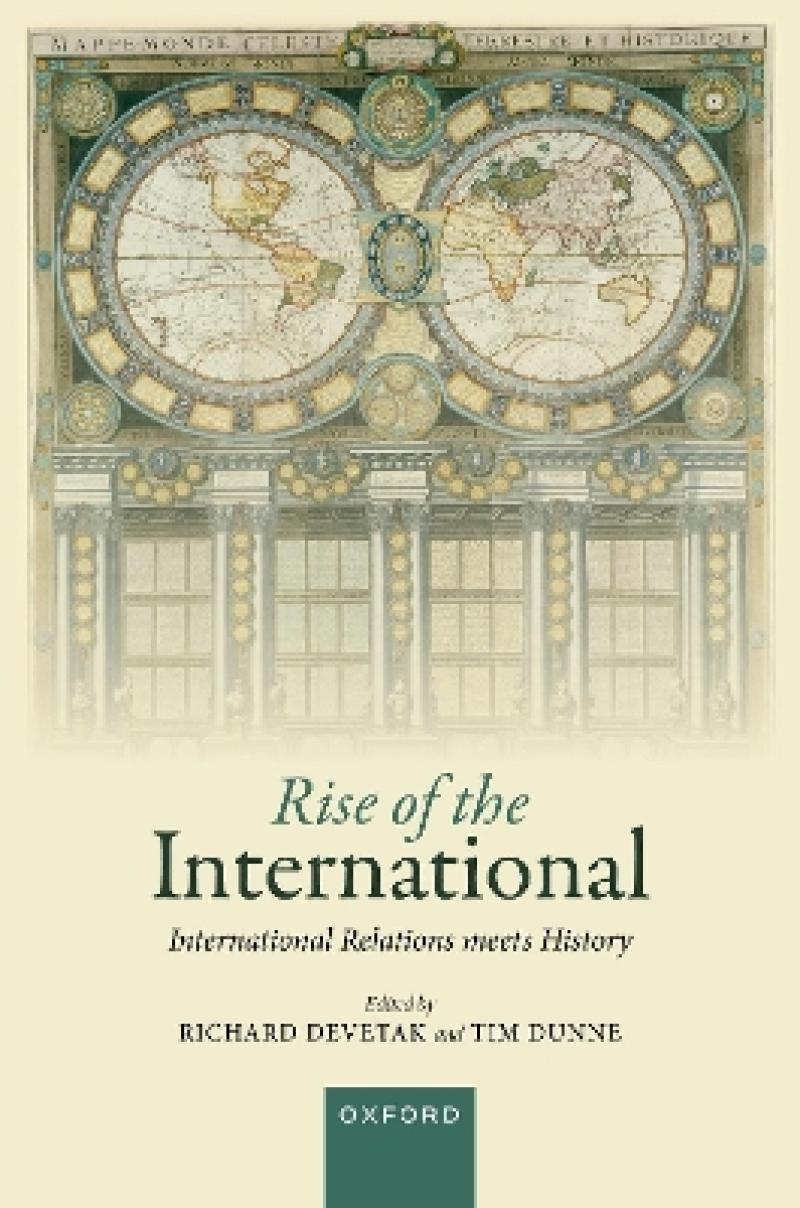International Relations and History were once academic fields sharing a common concern with the affairs of empires, states, and nations. Over the course of the twentieth century, however, they drifted apart. International Relations largely retained the focus on the affairs and relations of these principal international actors but took a methodological turn leading to higher levels of theoretical abstraction. History, on the other hand, retained the methods that define the discipline but shifted the focus, veering away from matters of state to the vast array of actors, events, activities, and issues that colour everyday life. In recent years, the drift has been arrested by scholars in each discipline who have turned towards the other discipline in their research. International Relations has undergone a 'historiographical turn' while History has taken an 'international turn'.
Rise of the International brings together scholars of International Relations and History to capture the emergence and development of the thought, the relations, and the systems that have come to be called international in western discourse. The evidence offered by contributors to the volume suggests there has been no single, stable, unchanging concept or object of theoretical reflection or historical investigation that can be called 'the international', but a variety of historically contingent conceptualizations across different contexts.
Les mer
Rise of the International brings together scholars of International Relations and History to capture the emergence and development of the thought, the relations, and the systems that have come to be called international in western discourse.
Les mer
PART 1: Introduction
1: Richard Devetak: Divided by a Common Language: The International in History and Theory
PART 2: Early Modern European Internationals
2: Michele Chiaruzzi: Tasso and the Diplomatic Persona
3: Luke Glanville: Grotius on Duties in the International State of Nature
4: Richard Devetak: Natural Law and the Rise of the International
5: Ryan Walter: From Counsellor to Theorist, or, The Real History of Realism: Interest in England c. 1640-1680
6: Juliette Gout: The International in the English Enlightenment Press
7: Lorenzo Cello: Discovering Bentham's International
PART 3: Empires and Internationals
8: Ian Hunter: Empire without Imperialism, Imperialism without Universal Norms
9: Lisa Ford and Lauren Benton: Empire, Nation and the International in the mid-Century Atlantic
10: Elisabetta Fiocchi Malaspina: Jurists and the International: Italian Legal Discourse in the 19th Century'
11: Jennifer Pitts: The Society of Nations, Imperialism, and the Color Line: Three Conceptions of the International
PART 4: Modern/Global Internationals
12: Or Rosenboim: Internationalism and Globalism in Mid-twentieth Century Political Thought
13: Sanjay Seth: The Bandung Imaginary
14: Annalisa Furia: Experiencing the International Space: Hannah Arendt on Reality, History, and Plurality
15: Glenda Sluga: Climate and Capitalists: Barbara Ward, Margaret Mead and the 1972 UN Conference on the Human Environment
Les mer
Richard Devetak is Professor of the History of International Thought at The University of Queensland. He has published on the history of political and international thought, contemporary theoretical debates in international relations, humanitarian intervention, the 'war on terror', and globalisation's implications for justice and the state, as well as on foreign policy, refugees, and national identity in the Australian context.
Tim Dunne is Provost and Senior Vice-President at the University of Surrey where he is responsible for delivering the University's academic mission. Previously, Tim held a number of leadership roles at The University of Queensland (UQ), including Director of the Asia-Pacific Centre for the Responsibility to Protect, Executive Dean of the Faculty of Humanities and Social Sciences, and Deputy Provost.
Les mer
Brings together scholars of International Relations and History to capture the emergence and development of the thought, the relations, and the systems that we call international
Explores a richer, more nuanced, understanding of the variety of internationals and their conceptualization across different contexts and times
Includes contributions from leading scholars in the fields of International Relations and History
Les mer
Produktdetaljer
ISBN
9780192871640
Publisert
2024
Utgiver
Vendor
Oxford University Press
Vekt
706 gr
Høyde
240 mm
Bredde
162 mm
Dybde
25 mm
Aldersnivå
P, 06
Språk
Product language
Engelsk
Format
Product format
Innbundet
Antall sider
368
